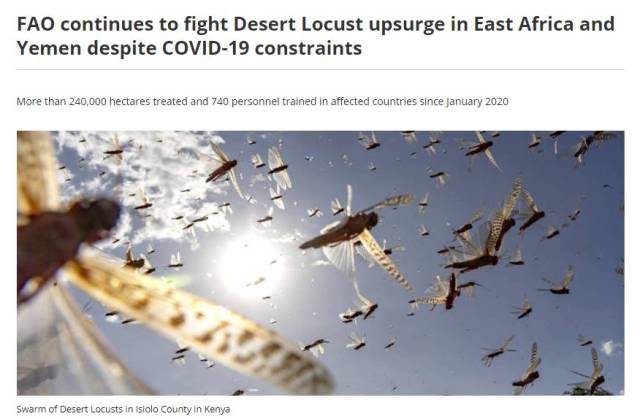
As the coronavirus plague sweeps across the planet, it’s easy to overlook another biblical curse that has befallen several Commonwealth countries: swarms of locusts, which have devoured food and commercial crops from south Asia to east Africa.
Climate change is, unsurprisingly, to blame: a series of cyclones related to the same weather pattern that fed Australia’s devastating bushfires brought heavy rain to the Empty Quarter of the Arabian peninsula, allowing three generations of locusts to breed in just nine months – an 8,000-fold increase. The UN Food and Agriculture Organisation said: ‘Cyclones are the originators of swarms and in the past 10 years there’s been an increase in the frequency of cyclones in the Indian Ocean.’
In Kenya, which has had its worst outbreak in 70 years, one very large swarm extended over 2,400 square kilometres – an area the size of Luxembourg. According to Nature, even a 100 sq km swarm can contain 8bn locusts, eating what 3.5 million people would eat in a day. After covering 150km a day of Kenya, the insects headed to Uganda and Tanzania, threatening millions more people already suffering from food insecurity.
Farmers in Pakistan’s poorest province, Balochistan, are counting the cost of three swarms already this year. More than 55,000 hectares have been damaged in Pakistan since last April in what the government says is the worst attack for 27 years. More locusts are expected in May and June, threatening the breadbasket provinces of Punjab and Sindh.
Countries in the path of this legion of voracious insects are throwing their military into the struggle; Uganda has deployed thousands of soldiers led by a veteran commander of the fight against the Lord’s Resistance Army insurgency. ‘The war has started,’ the Guardian was told.
[This article is from the Commonwealth Update section of The Round Table: The Commonwealth Journal of International Affairs.]



